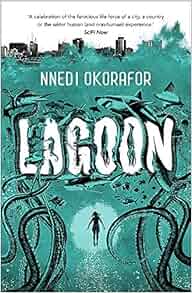

The unfortunate insufficiency of creative response to so great a threat is surprising when compared to the “literature did not only annotate the politics of the nuclear debate, helped to shape it. Where are the novels, the plays, the poems, the songs, the libretti, of this massive contemporary anxiety? (emphasis added) But it does not yet, with a few exceptions, exist as art. Top of pageġ In a 2005 Guardian article titled “The Burning Question,” British writer Robert Macfarlane ponders over the relationship between the climate change crisis and language: “Where is the literature of climate change? Where is the creative response to ‘the most severe problem faced by the world’?” While Macfarlane argues that the literary reaction to the threat of nuclear power has been quite copious, he nevertheless rues the dearth of a similar literary impetus and output when it comes to climate change:Ĭlimate change exists as paper trail, as data stream, as journalism, as conversation, and as behaviour.


“More Sea than Tar” can also be read as a cautionary tale, a pedagogical nudge to the readers in order for them to lead more ecofriendly lives. Despite the “ecodystopian” environment, there are dreams of a better world, and strategies of survivalism that are put in place. Then, the question of vulnerability is raised, as Ize-Iyamu puts forward an environment that has become unfamiliar and hostile, in order for the readers to “experience fear in their guts.” Finally, I study how Ize-Iyamu weaves both resilience and hope into his narrative in order to counterbalance the sinister atmosphere. I first analyse the poetics and politics of the “ African Anthropocene” through a close reading of the text and through references to other writers and philosophers’ works. In this paper, Nigerian author Osahon Ize-Iyamu’s 2019 short story “More Sea than Tar” is used as a template for “Climate Fiction.” This ecodystopian short story is read within the broader category of speculative fiction and is part of an emerging stream of dystopian fiction from Nigeria and Africa more generally.


 0 kommentar(er)
0 kommentar(er)
